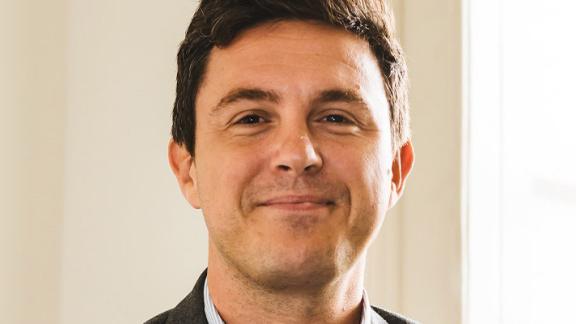NHS Reset: Has COVID-19 accelerated the role of volunteering across integrated care?

NHS Reset is an NHS Confederation campaign to help shape what the health and care system should look like in the aftermath of the pandemic.
Here, Paddy Hanrahan, director of strategy and innovation at Helpforce, writes on how as the NHS faces its biggest challenge, watching our communities come together to support the most vulnerable has brought much-needed hope.
Earlier this year, we witnessed 750,000 people sign up as volunteer responders in just two days, and many more joined the thousands of mutual aid groups that sprang up in our communities. COVID-19 is accelerating change, and with the right approach, this could be positive for volunteering. With a second wave hitting now, our report, published today, provides evidence that it is time to build on the significant developments in volunteering in our communities. We interviewed 27 leaders from NHS, local authorities, and the voluntary sector across 11 integrated care systems (ICSs) and sustainability and transformation partnerships (STPs). They shine a light on how volunteers can create much needed resilience across ICSs, and how volunteers can keep the most vulnerable protected, at home and out of hospitals and GP surgeries.
Through conversations with health and care leaders, it became clear that they recognise that volunteers are a largely untapped resource of skills, time and energy. Although volunteer resources exist within our communities, systems across the country have failed to take advantage of the potential they bring.
Our report highlights that as a consequence of COVID-19, health and care organisations have access to more volunteers than they can currently support. But if systems recognise their role in bringing partner organisations together, volunteers can help to maintain the delivery of health and care services. Through taking a strategic overview they can make the most of this powerful resource.
We have found that the systems who recognise that volunteering can play a key role in building local resilience are best placed to work with volunteers. The systems that have invested time and effort in building relationships between organisations that have volunteers have been better placed to provide a coordinated response to the pandemic.
Key findings suggest:
- System leaders now have a greater understanding of the value of volunteers since the beginning of the pandemic.
- We need to move to an assumption that, particularly in times of civil emergency, volunteer recruitment campaigns will bring in a significant number of prospective volunteers.
- Systems that had previously identified volunteering as a key element of civil emergency response were able to mobilise very quickly in response to COVID-19.
- Local voluntary sector organisations tend to be more agile than statutory services and can quickly design new volunteer roles, recruit significant numbers of local people, and deploy them.
- When new volunteers put themselves forward for roles, delays from organisations in taking up the offers can have a negative impact.
As Jessie Hamshar, director of strategy and engagement at Cornwall Council, comments: “There has definitely been a moment for accelerating transformation because this has been the biggest lever for change we’ve ever seen and we are trying to exploit it for all its worth in terms of driving some of the transformational change that we want to see both within the VCSE (voluntary, community and social enterprise) and across with the statutory sector.”
The pandemic has highlighted that ICSs and STPs need to work closely with communities to design volunteer roles that meet the needs of the neighbourhoods they exist in. And they need to respond quickly to offers presented by volunteers. Failure to respond effectively runs the very real risk of losing the goodwill and engagement of communities.
Our research demonstrates that volunteering is not only a key responsibility of ICSs but is also an example of how integrated care can work in communities. The volunteering response to COVID-19 has been a real-world example of what can be achieved when the health and care system works with communities.
It also demonstrates the imperative to bring volunteering into integrated care. We are seeing more leaders of ICSs/STPs take notice of the role volunteers can play in the health and wellbeing of their communities, and we are witnessing many more volunteer programmes take root. To ensure this acceleration continues, we need to support systems to develop the best infrastructure to embrace and maximise community volunteering initiatives. And we need to understand the impact these initiatives have on easing the pressure on the NHS and helping to meet long-term health priorities.
By making the full economic case for greater investment in volunteering, and with it improved sustainability for voluntary and community sector partners, we can fully realise the benefits volunteers bring.
Read our full report: Integrated Volunteering Response to COVID-19.
Paddy Hanrahan is director of strategy and innovation at Helpforce. Follow him on Twitter @paddy_hf



